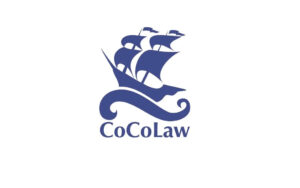This workshop, organized as part of the Settler Colonial Paradigms (SECOPS) research program of the Royal Netherlands Institute in Rome, explores the role of Roman law in the history of European colonialism, with a specific focus on the early modern Dutch Empire.
As arguably the most important institutional legacy of antiquity, Roman law was widely applied in the development of European empires from the sixteenth century onwards, as metropolitan jurists and colonial agents sought to make sense of, structure, and legitimize the establishment and expansion of colonial rule overseas. Roman law can thus be considered key to understanding the formative role of classical models—enshrined in legal texts and ordinances—in shaping modern forms of (settler) colonialism.
The early modern Dutch Empire epitomized this formative role of Roman law in the process of creating and claiming a colonial order. From Batavia to Brazil, and from the Cape Colony to New Netherland, Dutch colonial authorities relied on Roman law to establish control over peoples and territories and to organize systems of governance and exploitation, including slavery. However, the global impact of Roman law was not unidirectional. As officeholders, settlers, and indigenous and migrant communities negotiated, contested, and subverted colonial power, Roman law was adapted to specific local circumstances and became entangled with other forms and practices of jurisdiction. In this way, Roman law shaped colonialism, while colonialism also reshaped Roman law.
Bringing together colonial historians and legal historians, including the research group Comparing Early Modern Colonial Laws from the University of Helsinki, the workshop examines this dynamic interaction between Roman law and colonialism.
Program
Thursday 16 January
9.30-9.45: Introduction (Arthur Weststeijn, Utrecht)
9.45-10.45: Roman law in Dutch colonialism: an overview (Luuk de Boer, Groningen)
coffee break
11.00-12.00: Socio-cultural approaches to the history of law and legal practice in Dutch colonialism (Alicia Schrikker, Leiden)
12.00-13.00 Spanish colonial law and Roman law (Heikki Pihlajamäki, Helsinki)
lunch break
14.00-15.00 Roman law and the British colonial empire (Gustavo Zatelli, Helsinki)
15.00-16.00 Grotius on Manhattan (Janne Nijman, Amsterdam/Zürich)
coffee break
16.15-17.15 Adoption as a quasi-legal practice in the eighteenth-century Dutch East Indies and beyond (Sophie Rose, Tübingen)
Friday 17 January
9.30-10.30: The employment of Roman legal texts in connecting colonial rule and slavery in theory and practice (Jacob Giltaij, Amsterdam)
coffee break
10.45-11.45 Roman law and East-Indian slavery: the case of Hugo Grotius (Marc de Wilde, Amsterdam)
11.45-12.45 Ceijlon’s freedom? The lives of Manna and Jan Jansz between Colombo and the Cape (Dries Lyna, Nijmegen)
lunch break
13.45-14.45 Slavery: the interplay between Roman law and customary law in the Dutch Republic (Bastiaan van der Velden, Heerlen)
14.45-15.45 Manumission law, racialization and the transition from slavery to citizenship in Atlantic slavery (Karwan Fatah-Black, Leiden)
coffee break
16.00-16.30 Conclusion and publication plans
© image: Residence of the governor general in the castle at Batavia, 1682 – Koninklijke Bibliotheek



